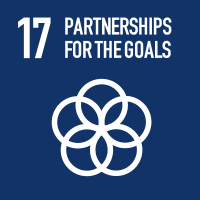Training and Research
PhD Programme Courses/classes
This page shows the PhD course's training activities for the academic year 2024/2025. Further activities will be added during the year. Please check regularly for updates!
Modelli dinamici e simulazione di sistemi multibody
Credits: 5
Language: English
Teacher: Iacopo Tamellin
Advanced techniques for acquisition of biomedical images
Credits: 2.5
Language: Inglese
Teacher: Paolo Farace, Federico Boschi
Theranostics: from materials to devices
Credits: 1
Language: english
Teacher: Nicola Daldosso, Tommaso Del Rosso
Nanomaterials: synthesis, characterization and applications
Credits: 1
Language: English
Teacher: Francesco Enrichi, Tommaso Del Rosso
Brain Computer Interfaces
Credits: 3
Language: Inglese
Teacher: Silvia Francesca Storti
Algorithmic motion planning in robotics
Credits: 1
Language: Italian
Teacher: Paolo Fiorini
Data visualization
Credits: 1
Language: Inglese
Teacher: Andrea Giachetti
Sistemi Ciber-Fisici nell’Industria 4.0: Modellazione, Reti e Intelligenza
Credits: 3
Language: English
Teacher: Enrico Fraccaroli
Modellazione e analisi 3D
Credits: 1
Language: Inglese
Teacher: Andrea Giachetti
Modelli di Intelligenza Artificiale Spiegabile: stato dell'arte, promesse e sfide
Credits: 2.5
Language: Inglese
Teacher: Gloria Menegaz
Foundation of Robotics Autonomy
Credits: 1
Language: Italian
Teacher: Paolo Fiorini
Generative AI
Credits: 1.5
Language: English
Teacher: Francesco Setti
Modeling and Verification of Digital Systems
Credits: 1.5
Language: Italian
Teacher: Franco Fummi, Nicola Bombieri, Graziano Pravadelli
Soft robotics: from nature to engineering
Credits: 1.5
Language: English
Teacher: Francesco Visentin
Techniques and algorithms for biomechanics of movement
Credits: 2.5
Language: English
Teacher: Roberto Di Marco
Soft robotics: from nature to engineering (2024/2025)
Teacher
Referent
Credits
1.5
Language
English
Class attendance
Free Choice
Location
VERONA
Learning objectives
The course explores how compliance in the robot body can be exploited for dealing with task and environment uncertainty and for interacting with humans. “Softness” offers higher safety, larger variability of movement and higher dexterity and shows the potential for building safer, cheaper and more intelligent autonomous robots than conventional robotics can achieve. Taking inspiration from biological systems, which are able to survive in complex and unstructured environments thanks to the intrinsic compliance of their soft and flexible body, the focus is in understanding the mechanisms at the base of their high adaptability and in replicating them in robots for achieving intelligent behaviour. In particular the role of body morphology (i.e., form and structure), how biological systems use their body to control basic actions, and how intelligent behaviour emerges from the interaction between the body and the environment in which it is placed, constitute the foundation of the design of new soft actuators and sensors and new control strategies for the robot of the future.
Prerequisites and basic notions
No specific prerequisites are needed. CAD Design, Machine Learning, Programming, and elements of Biology may be helpful.
Program
The student will acquire the necessary tools to design soft robots and provide solutions to various application scenarios where rigid robotics has limitations. In particular, the course will provide an introduction to soft robotics and cover topics related to design methods, materials, and fabrication techniques. It will also explore the technologies used to create soft actuators and sensors, as well as control methods. Additionally, the course will showcase examples where the successful implementation of soft robots has been demonstrated.
The student will get competences in : 1) introduction to soft robotics 2) Soft Robots Design Principle 3) Materials and manufacturing methods for soft robots 4) soft actuators and sensors 5) modeling and control of soft robots 6) Soft Robotics applications.
Didactic methods
Seminars and Frontal lectures
Learning assessment procedures
Presentation of group or individual project carried out during the course with oral discussion
Assessment
Student projects can be evaluated based on Technical Depth and Rigor, Innovation and Originality, and Presentation Skills. Bonus points can be awarded for strong interdisciplinary integration.
Criteria for the composition of the final grade
100% project base



